Carriage leather
For centuries leather was used for the upholstery of carriage seats and it was a natural transition to make car leather seats. Since carriages were mostly open at the beginning, the seats were made of solid cowhide like horse saddles. With the leather cover and an under-cushion, the benches were softer than simple wooden benches. The leather was oiled and greased to make the leather water-repellent against humid conditions. The upholstery was an important comfort gain, since the suspension of the coaches didn't work well and roads were very bumpy.
Coach with leather top from Berlin from 1905 (www.restauratiecentrum.nu) and twelve suspensions Phaeton carriage with leather top from approx. 1900 (www.restauratiecentrum.nu).
Antique coach with still functional leather top.
For the coach roofs, thick cowhide leather was used, which was only pigmented on the grain side.
Carriage roofing leather of the company www.ledergrosshandel.com.
Nowadays carriages are hardly used, except as exhibits in museums, or for special occasions. Most of the carriages are used for tourism. Horse-drawn carriage rides are offered at tourist sites for smaller excursions. In such cases, the benches are mostly covered with artificial leather. This is cheaper than genuine leather.
Tourist coach at Mallorca with cushions made of artificial leather.
Additional information







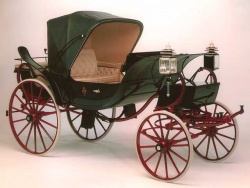
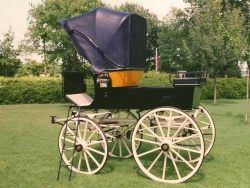
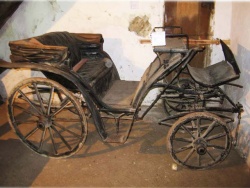
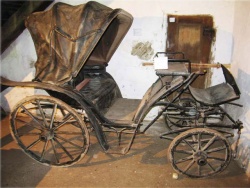
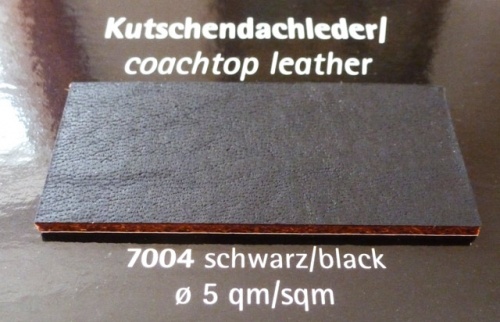

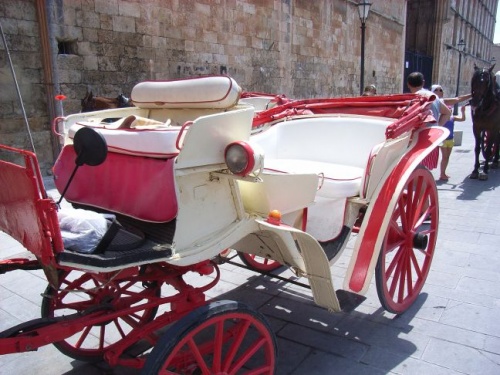

 a kotori web solution
a kotori web solution